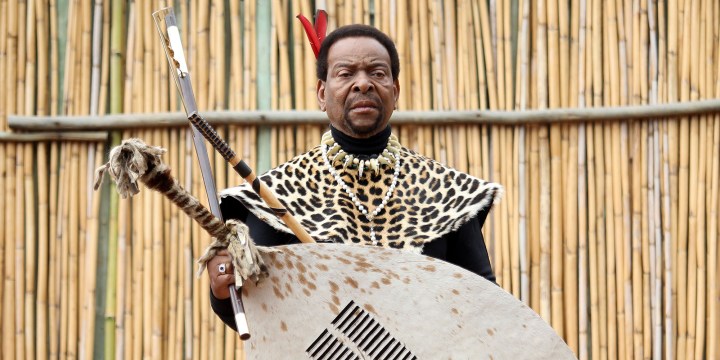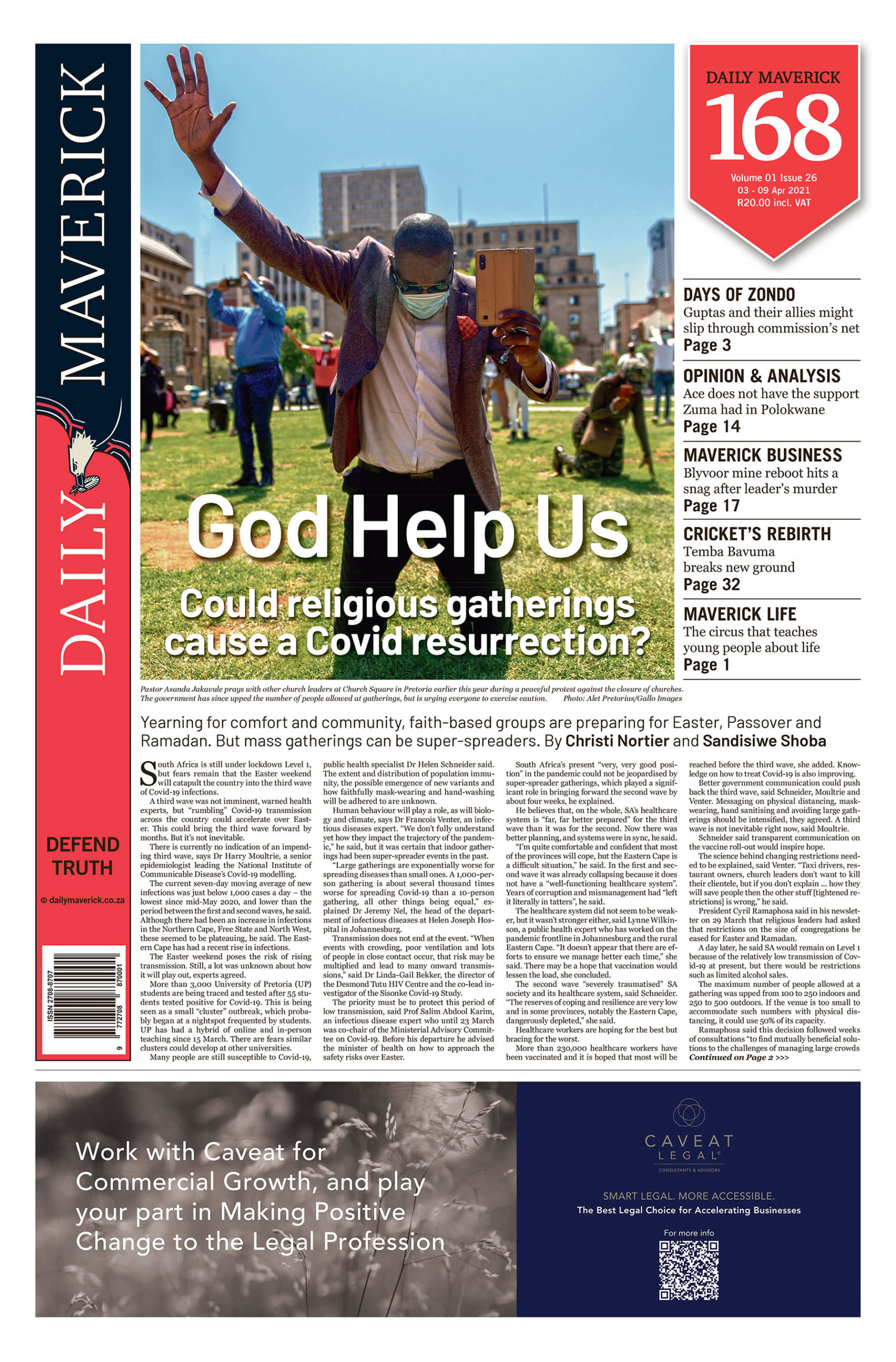DM168 REFLECTION
King Goodwill Zwelithini – a symbol of the culture we lost

Though it was a sombre occasion, the recent passing of King Goodwill Zwelithini kaBhekuzulu was a moment of profound cultural revival for the Zulu nation.
First published in the Daily Maverick 168 weekly newspaper.
For this born-free, King Goodwill Zwelithini’s death was a reminder of how disconnected I am from my Zulu heritage.
I have never before witnessed this level of international respect and fanfare afforded to a black African monarch.
Our heritage is often sidelined and belittled in comparison to white legacies and this was a watershed moment for a dynasty that has stood the test of time.
Load shedding was suspended for four hours, dignitaries and mourners came in droves to pay their respects at KwaKhethomthandayo Royal Palace and on the streets, and all over social media, Zulus displayed their pride by wearing traditional attire. But as I watched this display of cultural solidarity, it struck me what little significance the king’s death held for me.
In a practical sense, he was a ceremonial monarch who held no sway over my day-to-day life. I grew up in an urban setting where traditional leadership structures are almost nonexistent. Unless a staunch royalist, the average Zulu doesn’t know much about the customs associated with the royal house. For example, many of us were ignorant of the distinct language used in reference to the king: he is planted rather than buried and the Zulu nation is in darkness rather than mourning. We learnt about the secrecy surrounding the king’s burial and the intricacies of choosing his successor.
Controversies
What I knew of the king was a legacy tainted by controversies associated with the Ingonyama Trust and criticisms that Zwelithini played a significant part in encouraging the bloody wars between followers of Inkatha and the ANC ahead of the 1994 elections.
Although Zwelithini as a person held little significance for me, symbolically he was an embodiment of the culture and traditions that form part of my identity and heritage. His passing was an opportunity for self-reflection.
It dawned on me that, although I am a proud Zulu, I was never fully steeped in the customs that define my community. Perhaps it’s the by-product of being a middle-class born-free. Most of us straddle multiple realities. Our parents worked hard to give us “the best”, which meant educating us in historically white schools where our accents were coloured with anglicised tones and we were exposed to Western ideals.
We are bilingual in the sense that we are less fluent in our mother tongue than in English and we struggle to relate to family members whose reality differs from our own.
Cultural events were not a big part of our upbringing, save for the odd mcimbi where we were pushed to participate in rituals we often didn’t understand.
We wear traditional attire as a fashion statement to connect ourselves to our roots. We hold surnames and clan names that harbour a rich history we are often oblivious to.
We are the “coconuts” and “cheese boys” who long to be more “black”, but often feel misplaced and misunderstood.
It’s the tension of growing up in a democratic rainbow nation, where as much as we’re still fighting to solidify our racial and socioeconomic equality, we are losing pieces of our individual heritage.
It’s a messy reality that’s bred an identity crisis. We’re referred to as “born-frees”, liberated from apartheid, but we are still combating racism and colonialism. Many of us cannot seek refuge in our cultural identities because we barely know what those are.
Cultural gifts
Back in 2015, during the first wave of Rhodes Must Fall and Fees Must Fall protests, we grappled with our racial and cultural roots, hosting forums in university halls, reading books on our lineage. Some performed cultural rites in public.
Now many of us have entered adulthood and are asking ourselves what cultural gifts and rites of passage we will pass on to our children – if any.
Of course, no culture is perfect. Currently, debates are being had about changes that need to be made to some Zulu customs. For example, many have questioned why the king was buried only by men.
It was seen as a move that communicated a patriarchal stance towards Zulu women, who traditionally have also been denied land rights. There are hopes that the king’s successor – who is speculated to be prince Misuzulu kaZwelithini – will bring about the necessary reforms.
Ultimately, Zwelithini and the royal house symbolise a sense of belonging and unity among the Zulu people. His passing has sparked a “cultural revival” within me to delve deeper into my culture’s traditions and be proud of who I am by knowing where I come from. DM168
Sandisiwe Shoba is a Daily Maverick reporter.
This story first appeared in our weekly Daily Maverick 168 newspaper which is available for free to Pick n Pay Smart Shoppers at these Pick n Pay stores.





















 Become an Insider
Become an Insider
Could we start with dropping leopard skins in favor of fake leopard skins?
How do we reconcile civilization, rights, norms and laws with positions like kings and chiefs and traditional leaders???
Millions of South Africans fight for survival on royal land, a concept no worse than colonialism.